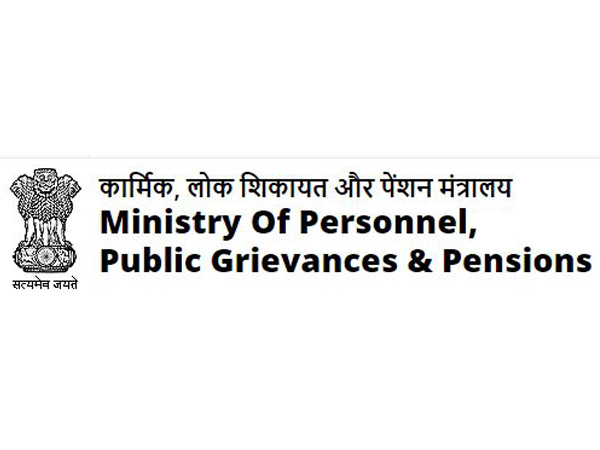DARPG, States Link CPGRAMS With RTS for Faster Grievance Redressal
In a significant technological leap, the DARPG will establish an API-based linkage between the CPGRAMS and State-level RTS portals.

- Country:
- India
In a landmark initiative aimed at improving the quality and efficiency of public grievance redressal, the Department of Administrative Reforms and Public Grievances (DARPG) is collaborating with Right to Services (RTS) Commissions of various States and Union Territories to create a seamless and digitally empowered grievance redressal ecosystem. The move follows the directions of Hon’ble Prime Minister Narendra Modi to enhance citizen satisfaction and ensure timebound delivery of justice in administrative processes.
A high-level meeting chaired by Shri V. Srinivas, Secretary, DARPG, was held on 30th May 2025, during which a blueprint for strengthening State-level grievance resolution was presented to RTS Commissioners across India. The meeting underscored the importance of supervisory oversight, transparency, and digital integration in grievance handling under the Centralized Public Grievance Redress and Monitoring System (CPGRAMS).
Mapping and Monitoring Grievances: Focus on Four Core Sectors
At the core of the initiative is the mapping of over 2.04 lakh public grievances received on the CPGRAMS portal, categorized under four crucial sectors:
-
Land-related issues
-
Labour and employment grievances
-
Environmental concerns
-
Banking and financial service complaints
These categories have been identified as priority sectors for systemic reform and fast-tracked resolution. The DARPG urged State-level RTS Commissioners to examine these grievances in alignment with their notified services under respective RTS Acts, thereby expanding accountability at the grassroots level.
CPGRAMS and RTS Portal Linkage via API
In a significant technological leap, the DARPG will establish an API-based linkage between the CPGRAMS and State-level RTS portals. This integration will enable:
-
Real-time sharing of service-related grievances between the Centre and States
-
Direct monitoring by RTS Commissioners of their jurisdiction’s unresolved complaints
-
Enhanced transparency in escalation and closure of grievances
-
Efficient feedback loops between public authorities and citizens
The pilot implementation of this API integration will be carried out in Haryana, leveraging its proactive governance model and RTS Commission’s digital capabilities. Learnings from the Haryana model will guide the nationwide rollout.
NeSDA and the Rise of e-Services
States are currently providing over 20,000+ e-Services under the National e-Governance Service Delivery Assessment (NeSDA) framework, aimed at improving ease of access, delivery quality, and citizen empowerment. The integration of grievance redressal mechanisms with RTS service delivery will enable:
-
Cross-verification of grievance trends with service delivery performance
-
Informed decision-making through comprehensive data analytics
-
Revision of mandatory service lists based on real-time citizen feedback and needs
The DARPG emphasized that grievance mapping would help review the coverage of RTS services, ensuring that critical public utilities and administrative functions are included in the RTS Acts of respective States.
State Collaboration Initiative (SCI): Call for Proposals
In another step toward cooperative federalism, State RTS Commissions have been invited to submit proposals under the State Collaboration Initiative (SCI) of the DARPG. This scheme provides strategic and financial support for:
-
Expanding e-service portfolios
-
Deploying AI-driven solutions in service monitoring
-
Setting up regional citizen outreach centers
-
Training grievance officers and frontline service providers
The SCI aligns with the Government of India’s broader vision for Digital India, emphasizing governance that is responsive, inclusive, transparent, and technologically enabled.
A Citizen-Centric Governance Model
Secretary V. Srinivas highlighted that the RTS Commissions play a pivotal role in enforcing citizens' rights to timely services and redress. The API integration and mapping project aim to deepen the accountability framework and provide citizens with faster and more predictable resolutions to their complaints.
He reiterated that timely grievance resolution is not just a bureaucratic responsibility, but a core pillar of citizen trust and democratic governance.
“Our goal is to ensure that every citizen feels heard, served, and respected. By integrating CPGRAMS with the RTS system, we are creating a digital bridge that ensures grievances don’t fall through the cracks,” said Srinivas.
The Road Ahead
This initiative represents a critical step in the transformation of public service delivery in India, making it digitally inclusive, transparent, and efficient. As the CPGRAMS-RTS linkage is rolled out across the country, it is expected to:
-
Reduce pendency of grievances
-
Increase public satisfaction
-
Empower State Commissions with actionable data
-
Build a cohesive national grievance redressal framework
With this collaborative model, the government aims to reinforce its commitment to minimum government, maximum governance, where the voice of every citizen matters and responsiveness is institutionalized.










